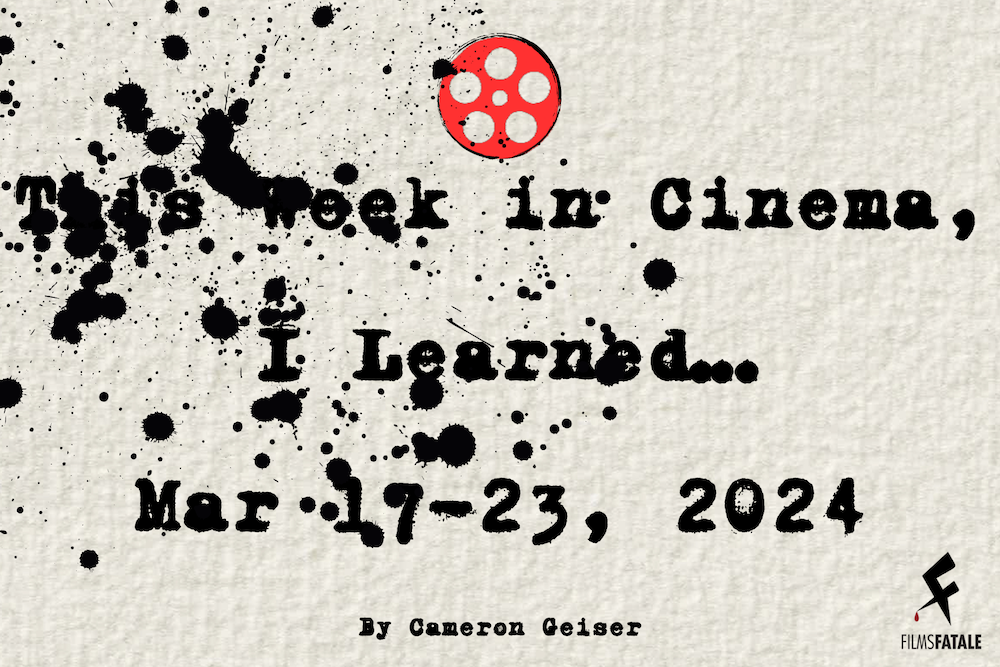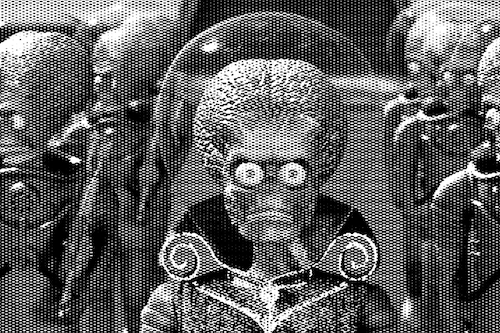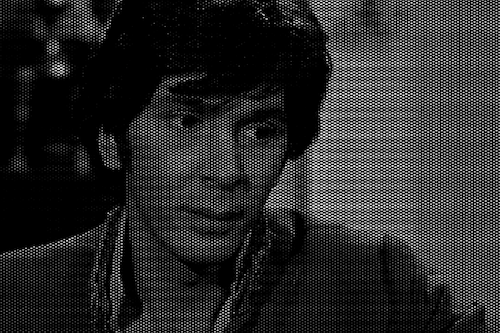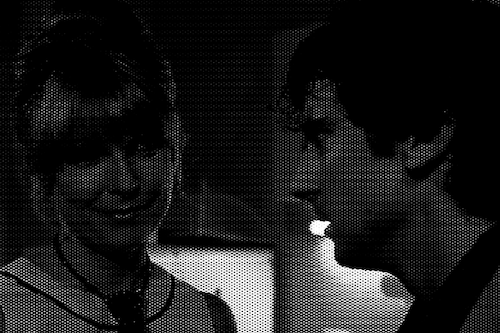This Week in Cinema, I Learned…Mar 17-23 2024
Written by Cameron Geiser
Welcome to This Week in Cinema, a yearlong film criticism project wherein I will be watching a new film that I haven't seen every single day.
This was a good week in Cinema folks! There were a few last-second additions and surprises to the lineup, but it was all worth the chaos for I have now seen what may be my favorite movie of the year. I knocked out three films that I've been needing to watch in a Tim Burton film from the 1990s, Mel Brooks' second film which may be his most underseen film, and an Arthouse icon that always appears on lists of films regarded as the cream of the crop, if you will. I also caught an earlier Martin Scorsese flick and Christopher Nolan's first film as well. Though one of the best surprises so far was in a new comedy starring John Cena, and it was legitimately a great time! The lesson this week folks is to take a chance. That's how I made the time for Wim Wenders' latest film, Perfect Days, and I can honestly say it changed the course of my week for the better. I never use the word perfect in my daily life. It's a word that sets up expectations that cannot be fulfilled in almost every case. However, Perfect Days is as close as I will get to calling a film perfect. If not nirvana, it is close.
March 17th
Ricky Stanicky (2024)
3.5/5
I've been casually hearing about Ricky Stanicky for years, or at least that it was a popular script on the Blacklist and it's been in various forms of pre-production and contracting for over a decade. Now that it's landed with Comedy veteran Peter Farrelly at the helm, how did it turn out? Better than expected to tell you the truth. The story concept is that in their youth three boys accidentally set a house on fire one Halloween and escaped punishment by blaming the accident on a character they created out of panic, Ricky Stanicky. Years later as thirty-somethings in uniquely different stages of adulthood Wes (Jermaine Fowler), JT (Andrew Santino), and Dean (Zac Efron) are forced to prove that Ricky Stanicky is a real person, or fess up and tell their friends and family the truth. Obviously, that's not going to happen so they hire a strangely committed character actor named Rod Rimestead (John Cena) that they met in Atlantic City to transform into their scapegoat in the flesh. Unfortunately for them Rod's life really isn't all that great so he decides to truly become Ricky Stanicky and it isn't long before he's hired by JT and Dean's Boss, Mr. Summerhayes (William H. Macy).
Ricky Stanicky as a comedy worked for me mainly due to two major factors, John Cena and the script. John Cena commits so hard to this role, it's insanely entertaining, his presence steers the whole film and it's better for having him at the center of it all. Everyone else does a fine job, Ricky Stanicky knows how to handle every personality involved without overdoing any one element. Having a script that defies expectations lends this film an extra spoonful of goodwill that balances everything out when combined with the crass humor. Just because the movie has some very stupid jokes based on genitalia doesn't mean it can't also have a few beats and monologues that were surprisingly well crafted. My only real complaint is one that holds true for every Modern American comedy- the film (like many others) never relies on the medium of cinema to visually tell jokes or emphasize story elements. It is funny though, and it's a shame that it didn't get a theatrical release, I'd say it's one of the better comedies in years.
March 18th
Mars Attacks! (1996)
3/5
I have a very uneasy relationship with Tim Burton's filmography. The first half of his career is full of creatively fascinating films like his two Batman films, Beetlejuice, and my personal favorite film of his, Ed Wood. The second half, for the most part, has been disappointing, cringeworthy, and dull with his reliance on self-parody and adaptations of big IP titles like Dumbo or Charlie and The Chocolate Factory. However, I did quite enjoy Frankenweenie. With his sequel to Beetlejuice arriving later this September, I wanted to knock another well-known film of his off the board, so Mars Attacks! was next. What can I say about this film? It has a delightful Saturday morning cartoon vibe as advanced aliens from Mars arrive in flying saucers and lay siege to the Earth. The cast is the most impressive part of the whole ordeal. Seemingly most of Hollywood was involved in this movie, everyone from Jim Brown and Pam Grier to Martin Short, Jack Black, Danny DeVito, Michael J. Fox, Tom Jones, and Jack Nicholson playing double duty as the President of The United States and a drunk business tycoon cowboy out in Las Vegas. It's a giant budgeted B-movie with half of Hollywood at the time in cheesy bit roles. I mean, I laughed.
March 19th
Beau Travail (1999)
3/5
This is another one of those films that appears on every list of the best films of all time, so I watched it purely out of curiosity. It's alright, but it's not exactly my idea of a good time. After some mild googling, the story at hand makes more sense, but I still wasn't very interested in Beau Travail if I'm being honest. The film by Claire Denis is loosely based on Herman Melville's 1888 novella Billy Budd with some of the soundtrack being from the 1951 opera based on the novella. It's artful, but it's also very much about the insanity of living life as a fighting force but not having an enemy to strive against. Okay, so we follow a small band of members of the French Foreign Legion stationed in North Africa. Their lives are determined by mindless routine, train, wash, dance in nightclubs, sleep, repeat. Which, naturally, pairs with the sluggish pace to create a sense of restlessness that I personally was not a fan of. Eventually, a new recruit joins and the Adjudant-Chef Galoup (Denis Lavant) instantly harbors intense feelings of rage and suspicion towards the newcomer. New recruit Sentain (Grégoire Colin) is quickly accepted by everyone, except Galoup, with his amiable candor and willingness to help others. The rest of the film is mostly Galoup scouring and scheming while everyone else goes through the motions of the routine until Galoup acts on his suspicions tearing the team apart and eventually getting kicked out of the French Foreign Legion altogether. It wasn't for me, but maybe it's your next cinematic obsession?
March 20th
The Twelve Chairs (1970)
4/5
Ever since reading Mel Brooks' Memoir (All About Me!) last year, I've been committed to watching all of his films sprinkled throughout the year. This next title is his second film, right between The Producers and Blazing Saddles, an adaptation of a Novel called The Twelve Chairs. It's a fun simple story concept. An aging woman in the 1927 Soviet Union reveals to her son-in-law and the local Priest that years ago she had hidden jewels and rubies in one of the twelve gold chairs adorning the dining table in the old family mansion before the Russian Revolution upended aristocrats' lives. Thus her son-in-law, former aristocrat Vorobyaninov (Ron Moody) and the Russian Orthodox Priest who heard her deathbed confession, Father Fyodor (Dom DeLuise) both embark on a mad chase to find the chairs and claim the riches within one of the twelve golden chairs. Once Vorobyaninov returns to his old manor and questions his former servant Tikon (Mel Brooks) to find that the chairs were appropriated by the state, he's crestfallen until a manipulative con artist named Ostap Bender (Frank Langella) overhears and insists on being involved in the search. They find that the chairs were sold individually and they embark on a journey of false starts and red herrings while constantly stymieing Father Fyodor's efforts to beat them to the prize. The Twelve Chairs was a more serious drama than most of Mel Brooks’ films, however Ron Moody perfectly embodied the typical manic main character energy usually dominated by the ferocity of Mel Brooks' performance as a living Tex Avery cartoon character. Dom DeLuise was also a comedic powerhouse in this film, offering up much of the physical comedy in the picture. A strong ending also helped to secure the score to a healthy position in the upper half of the scale.
March 21st
Perfect Days (2023)
5/5
As of this point in This Week in Cinema, Perfect Days is firmly lodged in first place as my personal favorite film of the year, so far. I also happen to believe it to be one of the strongest films of the year from a critical standpoint, bias aside. I've seen and enjoyed Wim Wenders' films before, but this reaches a whole new level of auteurship. Perfect Days is an ode to one of my favorite filmmakers of all time, Yasujirō Ozu. The 4:3 aspect ratio, a heavy focus on a minimalistic storytelling approach, usually involving familial dramas, with some framing and cinematography choices ripped straight from Ozu classics- all of these things imbue the film with a rare sense of timelessness and familiarity. However the camera moves far more here than in at least seventy percent of Ozu's output. We follow Hirayama (Kōji Yakusho) over the course of about a week and a half as he goes about his daily life as a Tokyo Toilet cleaner. In his free time he pursues photography of trees, reading some good literature, and immersing himself in music from his large collection of cassette tapes lining his work van.
We also see his dreams after each day's end, a brilliant piece of visualization in filmmaking in which fragments of his previous day blend together in an impressionistic series of images overlapping and evolving in short sequences that look as if drawn by pencil on black paper. Genius. Each day reveals more about the intricacies of Hirayama's life, his coworkers, and his regular haunts like the sports bar wedged into the subway system or the restaurant he frequents for a nightcap and some neighborhood gossip with the owner. The music that flows throughout this film is very intentional to the story at hand, it layers the narrative with a connection to Hirayama that we wouldn't, and don't, get from him in most scenes with dialogue or interactions with the litany of characters that border this film. Speaking of noteworthy characters, Hirayama's young coworker, Takashi (Tokio Emoto), and the girl he's pursuing (poorly), Aya (Aoi Yamada), were a delightful addition to the story and a highlight of the film. If you watch any of the films I recommend this year, make sure that Perfect Days is one of them.
March 22nd
After Hours (1985)
3.5/5
The last film made by Martin Scorsese that isn't an adaptation or a biopic, After Hours follows Paul (Griffin Dunne) over the course of one night after work as he tries desperately to go home after things get weird. Over a series of increasingly odd events, Paul's night escalates from possible sexual adventures into a nightmare where he's chased through SoHo by an angry mob for reasons that are convoluted to say the least. While I didn't much care for the film overall, I did enjoy the escalation of insane things that happened to Paul over the course of the night. The script was pretty weak, there's a lot that hasn't aged well socially speaking and the movie is super awkward and too horny for its own good. However, the filmmaking is really impressive. There's a kinetic, intense pace to the cinematography and movement of the camera itself. While the actors are all fine, their performances are brash and superficial which are intentionally heightened as the night goes on, adding to the nightmare sensation. It's not particularly great, but there's enough interesting things going on to merit a watch.
March 23rd
Following (1998)
4/5
Christopher Nolan's first film, Following focuses on that miniscule moment when locking eyes with a stranger in a crowd and thereby transforming a nameless face into a person. At least, initially it is. The main character is a young Writer (Jeremy Theobald) in London who follows random strangers in crowds with a system of rules that he immediately disobeys and gets caught. One of his marks realizes that he's being followed and confronts the Writer directly. He introduces himself as Cobb (Alex Haw), a thief who has a passion for break-ins that cause more emotional strife in forcing his victims to reassess their lives accordingly. Following is a brisk neo-noir running at roughly seventy minutes, and Nolan uses every second. I found it oddly entertaining that some elements of his storytelling style were already present immediately with his penchant for nonlinear storytelling that focuses on obsessive characters perfecting a trade. The relationship between the Writer and Cobb was also eerily reminiscent of Hitchcock's Strangers on a Train and the similarly fraught relationship between the main characters of that film. Now that he's finally won the Academy Award Gold with Oppenheimer, wind back the clock and check out Christopher Nolan's first film, Following.
Cameron Geiser is an avid consumer of films and books about filmmakers. He'll watch any film at least once, and can usually be spotted at the annual Traverse City Film Festival in Northern Michigan. He also writes about film over at www.spacecortezwrites.com.










